The Pearl Box Read online
THE PEARL BOX
Containing One Hundred Beautiful Stories for Young People.
BY A PASTOR.
1851.
PREFACE.
In preparing this volume of stories for young readers, the writer hashad in view their instruction, by presenting to them the duties of theirstation in a familiar and instructive story. Each story contains amoral, and teaches principles by which the youth should be governed intheir private, social and public relations in life. In the perusal ofthese stories, we hope to accomplish our great object, of aiding youngpersons to pursue the peaceful and pleasant path of duty--to render themmore useful in the world, and to grow wiser and happier in the path oflife.
THE DYING BOY.
A little boy, by the name of Bertie, was taken very ill, and forsometime continued to grow weaker until he died. A few hours before hisdeath he revived up, and his first request was, to be bathed in theriver; but his mother persuaded him to be sponged only, as the riverwater would be too cold for his weak frame. After his mother had spongedhim with water, he desired to be dressed; when his mother dressed him inhis green coat and white collar, and seated him at the table with allhis books and worldly treasures around him. As he sat there, one wouldhave thought that he was about to commence a course of study; and yet inthe marble paleness of his features, and in the listless and languideye, there was evidence that life in the boy was like an expiring taper,flickering in the socket. He soon asked to go out in his littlecarriage. His grandfather, whom he very much loved, placed him in it,and carefully avoiding every stone, drew him to a spot commanding theentire landscape. The tide was up, and the sun was shining on the deepblue waters, and bathing the distant mountains and the green meadows inliquid gold. The gardens and orchards around were gay in the richcrimson blossoms of the apple tree; the air was filled with the sweetfragrance of flowers, and the birds were singing beautifully, whenlittle Bertie looked for the last time on the scenes of earth. He couldnot remain long, and was soon taken back to the little parlor, where hesat on the sofa, resting his elbows on the table. It was not long beforethe little boy died. But he was very happy. Among his last words werethese, addressed to his little sister three years old: "Well, Emmie,very ill--me going to Jesus." "Oh, mamma, Emmie loves her Saviour."
THE BOY AND THE GOLD ROBIN.
A bright eyed boy was sleeping upon a bank of blossoming clover. Thecool breeze lifted the curls from his brow, and fanned with downy wingshis quiet slumbers, while he lay under the refreshing shade of a largemaple tree. The birds sang to him during his happy hours of sleep. Byand by he awoke, and a beautiful gold robin sat on the spray, and sunga song of joy. The boy reached out his hands to secure the prize, butthe robin spread his golden wings and soared away. He looked after itwith a longing gaze, and when it disappeared from his sight, he weptaloud. At this moment, a form of light approached, and took the hands ofthe child and pointed upwards; and he saw the bird soaring in freedomand the sun shining upon its burnished plumes. Then the shining onesaid; "Do you love that beautiful bird?" In the midst of his tears thechild replied, "Oh, yes." "Then," said the angel, "shall it not wing itsflight from flower to flower and be happy, rather than to dwell in aprison with thee?" Then the streams and flowering vales of Elysium, thatbreathe the pure air of freedom, spake: "Wouldst thou bring her back tothee, and make her a prisoner? Dry up thy tears, and let thy song be,'Stay not here, but speed thy flight, O bright one, and snuff themellow air of freedom.' God made the birds to be happy in their shortexistence, and ought we to deprive them of their own elements ofhappiness, and take from them the freedom which they enjoy?"
THE WAY TO OVERCOME EVIL.
A little girl, by the name of Sarah Dean, was taught the precepts of theBible by her mother. One day she came to her mother very much delighted,to show her some plums that a friend had given her. The mother said toher: "Your friend was very kind, and has given you a great many." "Yes,"replied Sarah, "she was, and she gave me more than these, but I havegiven some away." The mother asked to whom she had given them; when thechild replied: "I gave them to a girl that pushes me off the path, andmakes faces at me." Upon being asked why she gave them to her, sheanswered: "Because I thought that would make her know that I wished tobe kind to her, and perhaps she will not be unkind and rude to meagain." This was true. The rude girl was afterwards very good to Sarah,and felt very sorry that she had treated her unkindly. How truly did thelittle girl obey the command, "_overcome evil with good_."
HARRIET AND HER SQUIRREL.
It was on a Sabbath eve, when at a friend's house, we were all sittingin the piazza, conversing about the efforts which were being made forthe poor heathen, and the number of Testaments which were being sent tothem.
"Father," said little Harriet, "do the little heathen children wish tolearn to read the New Testament?"
"O yes, my child, many of them do," said the father. "But have they allgot Testaments if they did know how to read?" "No, my love; few of themhave ever heard about the Testament, about God, or about Jesus Christ.""Will half a dollar buy one?" said Harriet. "O yes, my child."
"Then," said Harriet, "may I sell anything I have, if I can get themoney?" Her father told her she might.
Now, every child has some favorite toy. Harriet's was a beautiful tame_gray_ squirrel. It would eat from her hands, attend her in her rambles,and sleep on her pillow. She called its name Jenny. It was taken sick,and the little girl nursed it with care, but it at last died in her lap.
Little Harriet wept sadly about it, and her father tried to consoleher, and told her not to feel so.
"Ah," said she, "you know, father, you told me that I might sellanything I had to buy a Testament for the heathen children, and I wasgoing to sell my pretty squirrel to Mr. Smith, who said he would give mehalf a dollar for it; but now my Jenny is dead." The Father then put asilver dollar into Harriet's hand, and she dried her tears, rejoicingthat Jenny's death would be the means of his little daughter having twoor three Testaments instead of one.
THE REWARD.
A teacher in a Sabbath School promised to supply all the children in hisclass with a catechism, who had none.
One of the little girls went home from the school after the books weregiven out and said:--
"Mamma, if I had told a lie to-day, I would have got a catechism."
"I think that very strange, Eliza; for the Sabbath School is no placefor lies, and if you could be so wicked, I know your teacher would nothave rewarded you for it."
"Mother," said Eliza, "I tell nothing but the truth; and now I willexplain it.
"You know I went to school this morning with the other girls. They toldme on the way how their mother had bought each of them a new catechismon last market day, and they said, if I once saw how pretty their bookswere I would not look at my old one any more. Our teacher asked us all,when we went in, if we had any catechisms, and those who said they hadnot, received one from the teacher as a present. Jane, after all shetold me, by the way, denied that she had any, and Lizzy did the same.But when he asked me, I told him I had one at home; but if I had saidno, I would have got a new one."
Her mother then told her that she should be rewarded for not telling alie by giving her a new book and a new Bible.
ANECDOTES.
A poor Arabian of the desert was one day asked, how he came to beassured that there was a God.
"In the same way," he replied, "that I am enabled to tell by a printimpressed on the sand, whether it was a man or beast that passed thatway."
* * * * *
THANKFULNESS.--Walking along Bishopgate street one morning, I saw twomen standing as if amazed at something that had happened.
"Pray, gentlemen," said I, "what is the matter?"
One of them informed me that a genteelly dressed man had hastily come upto him, and tapping him on the shoulder, had said:
"Sir, did you ever thank God for your reason?"
"No," said I, "not particularly."
"Well," said he, "do it now, for I have lost mine;" when he marched offwith great speed.
* * * * *
HONESTY.--An honest boy, whose sister was sick and the family in want,found a wallet containing fifty dollars. The temptation was great to usethe money; but he resolved to find the owner. He did so; when the owner,learning the circumstances of the family, gave the fifty dollars fortheir comfort. He took the boy to live with him. That boy is aprosperous merchant in Ohio.
* * * * *
THE BOY AND HIS MARBLES.--One Sunday a lady called to her little boy,who was shooting marbles on the pavement, to come into the house.
"Don't you know you shouldn't be out there, my son? Go into the backyard, if you want to play marbles; it is Sunday."
"Yes, mother; but aint it Sunday in the back yard?"
THE BOY AND THE DEW DROPS.
A little boy who had been out early in the morning playing on the lawnbefore his father's house, while the dew drops lay on the grass, wassoon after seen returning to the spot, and finding them all gone, he satdown to weep. His father asked him why he wept.
"Because," said he, "the beautiful dew drops are gone."
His father tried to soothe him, but he continued weeping. Just then acloud passed ever, and on the cloud the beautiful rainbow had cast itsarch.
"There, see, my son," said the father, "there are all your dew drops;the sun has taken them up only to set them forth in greater brightnessin the sky."
"O father, dear father, why pass they
away, The dew drops that sparkled at dawning of day, That glittered like stars in the light of the moon; Oh, why are the dew drops dissolving so soon? Does the sun in his wrath chase their brightness away, As if nothing that's lovely might live for a day? The moonlight is faded, the flowers still remain, But the dew drops have shrunk to their petals again."
"My child," said the father, "look up to the skies, Behold that bright rainbow, those beautiful dyes, There, there are the dew drops in glory reset, Mid the jewels of heaven, they are glittering yet. Oh, are we not taught by each beautiful ray To mourn not earth's fair things, though passing away; For though youth of its beauty and brightness be riven, All that withers on earth blooms more sweetly in heaven. Look up," said the father, "look up to the skies, Hope sits on the wings of those beautiful dyes."
LETTICE AND MYRA.
A SCENE IN LONDON.
My young readers may have heard about the poor people in London. Thefollowing story is a specimen of the hardships of many young girls inthat famous city.
"Two young women occupied one small room of about ten feet by eight.They were left orphans, and were obliged to take care of themselves.Many of the articles of furniture left them had been disposed of tosupply the calls of urgent want. In the room was an old four postbedstead, with curtains almost worn out, one mattress with two smallpillows, a bolster that was almost flat, three old blankets and cottonsheets, of coarse description, three rush-bottom chairs, an old clawtable, a chest of draws with a few battered band-boxes on the top of it,a miserable bit of carpet before the fire-place, a wooden box for coals,a little tin fender and an old poker. What there was, however, was keptclean, the floor and yellow paint was clean, and the washing tub whichsat in one corner of the room.
"It was a bitter cold night, the wind blew and shook the window, when ayoung girl of about eighteen sat by the tallow candle, which burned in atin candlestick, at 12 o'clock at night, finishing a piece of work withthe needle which she was to return next morning. Her name was LetticeArnold. She was naturally of a cheerful, hopeful temper, and thoughwork and disappointment had faded the bright colors of hope, still hopebuoyed up her spirits.
"Her sister Myra was delicate, and lay on the mattress on that night,tossing about with suffering, unable to rest. At last Lettice says toher:--
"'Poor Myra, can't you get to sleep?'
"'It is so cold,' was the reply; 'and when will you have done and cometo bed?'
"'One quarter of an hour more, Myra, and I shall have finished my work,and then I will throw my clothes over your feet, and I hope you will bea little warmer.'
"Myra sighed, and lifted up her head, and leaning upon her arm watchedthe progress of her sister as she plied the needle to her work.
"'How slowly,' said Myra, 'you do get along. It is one o'clock, and youhave not finished yet.'
"'I cannot work fast, Myra, and neatly too; my hands are not so delicateand nimble as yours.' and smiling a little, she added: 'Such swelledclumsy things, I cannot get over the ground nimbly and well at the sametime. You are a fine race horse, and I a drudging pony. But I shall soonbe through.'
"Myra once more uttered a sigh and cried:
"'Oh, my feet are dreadful cold.'
"'Take this bit of flannel,' said Lettice, 'and let me wrap them up.'
"'Nay, you will want it,' she replied.
"'Oh, I have only five minutes to sit up, and I can wrap this piece ofcarpet round mine,' said Lettice.
"And she laid down her work and went to the bed, and wrapped hersister's icy feet in the flannel, and then sat down and finished hertask. How glad was Lettice to creep to the mattress and to lay heraching limbs upon it. A hard bed and scanty covering in a cold night arekeenly felt. She soon fell asleep, while her sister tossed and murmuredon account of the cold.
"Lettice awoke and drew her own little pillow from under her head, andput it under her sister's, and tried every way to make her sistercomfortable, and she partly succeeded; and at last Myra, the delicatesuffering creature, fell asleep, and Lettice slumbered like a child."
How thankful ought we to be for kind parents, a comfortable home, and agood fire in a cold night. I will tell you in the next story whatLettice did with her work.
LETTICE TAKING HOME THE WORK.
Early in the morning, before it was light, and while the twilightgleamed through the curtainless windows, Lettice was up, dressingherself by the aid of the light which gleamed from the street lamp intothe window. She combed her hair with modest neatness, then opened thedraw with much precaution, lest she should disturb poor Myra, who stillslumbered on the hard mattress--drew out a shawl and began to fold it asif to put it on.
"Alas!" said Lettice, "this will not do--it is threadbare, timeworn, andhas given way in two places." She turned it, and unfolded it, but itwould not do. It was so shabby that she was actually ashamed to be seenwith it in the street. She put it aside, and took the liberty ofborrowing Myra's, who was now asleep. She knew Myra would be awful coldwhen she got up, and would need it. But she must go with the work thatmorning. She thought first of preparing the fire, so that Myra, when shearose, would only have to light the match; but as she went to the boxfor coal she saw, with terror, how low the little store of fuel was, andshe said to herself, "we must have a bushel of coal to-day--better dowithout meat than fire such weather as this." But she was cheered withthe reflection that she should receive a little more for her work thatday than what she had from other places. It had been ordered by abenevolent lady who had been to some trouble in getting the poor womensupplied with needle work so that they should receive the full price.She had worked for private customers before, and always received morepay from them than from the shops in London, where they would beat downthe poor to the last penny.
Poor Lettice went to the old band-box and took out a shabby oldbonnet--she looked at it, and sighed, when she thought of the appearanceshe must make; for she was going to Mrs. Danvers, and her work was somevery nice linen for a young lady about to be married.
Just at this moment she thought of the contrast, between all the finethings which that young lady was to have, and her own destitution. Buther disposition was such as not to cause her to think hard of others whohad plenty while she was poor. She was contented to receive her pay fromthe wealthy, for her daily needle work. She felt that what they had, wasnot taken from her, and if she could gain in her little way byreceiving her just earnings from the general prosperity of others, shewould not complain. And as the thought of the increased pay came intoher mind, which she was to receive that day, she brightened up, shookthe bonnet, pulled out the ribbons and made it look as tidy as possible,thinking to herself that after buying some fuel she might possibly buy abit of ribbon and make it look a little more spruce, when she got hermoney.
Lettice now put on her bonnet, and Myra's shawl, and looking into thelittle three-penny glass which hung on the wall she thought she mightlook quite tidy after all. The young lady for whom she made the linenlived about twenty miles from town, but she had come in about this time,and was to set off home at nine o'clock that very morning. The linen wasto have been sent in the night before, but Lettice had found itimpossible to finish it. This was why she was obliged to start so earlyin the morning. She now goes to the bed to tell Myra about the fire, andthat she had borrowed her shawl, but Myra was sound asleep, so she didnot disturb her, but stepped lightly over the floor and down stairs, forit was getting late and she must be gone. Read the next story and youwill be deeply interested in the result.
LETTICE AND CATHERINE,
OR THE UNEXPECTED MEETING.
I must tell you who were Lettice and Myra. They were the daughters of aclergyman, who held the little vicarage of Castle Rising. Butmisfortune, which sometimes meets the wise and good, reduced the familyto poor circumstances. After the parents' decease, Lettice and Myralocated in London, for the purpose of doing needlework for a living.

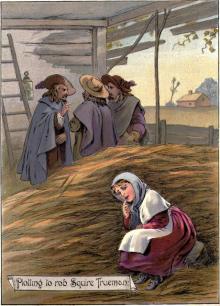 Goody Two-Shoes
Goody Two-Shoes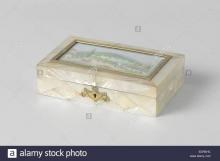 The Pearl Box
The Pearl Box And when you gone...
And when you gone... Stranger At The Other Corner
Stranger At The Other Corner My Young Days
My Young Days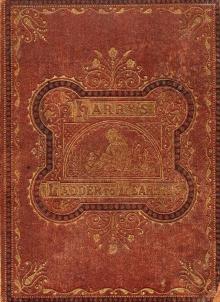 Harry's Ladder to Learning
Harry's Ladder to Learning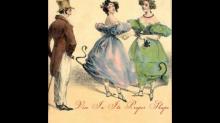 Vice in its Proper Shape
Vice in its Proper Shape_preview.jpg) Promise (the curse)
Promise (the curse) The First Sexton Blake
The First Sexton Blake Golden Moments
Golden Moments Hildebrand; or, The Days of Queen Elizabeth, An Historic Romance, Vol. 2 of 3
Hildebrand; or, The Days of Queen Elizabeth, An Historic Romance, Vol. 2 of 3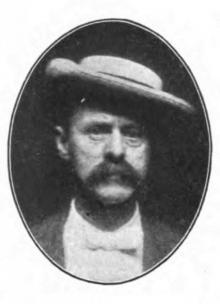 The Ice Queen
The Ice Queen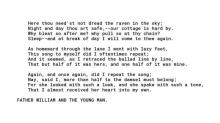 Phebe, the Blackberry Girl
Phebe, the Blackberry Girl Stoned Immaculate
Stoned Immaculate Hildebrand; or, The Days of Queen Elizabeth, An Historic Romance, Vol. 3 of 3
Hildebrand; or, The Days of Queen Elizabeth, An Historic Romance, Vol. 3 of 3 The Wonder of War on Land
The Wonder of War on Land Breaking Bailey
Breaking Bailey The Little Girl Who Was Taught by Experience
The Little Girl Who Was Taught by Experience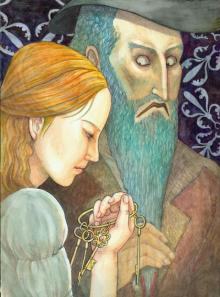 The Popular Story of Blue Beard
The Popular Story of Blue Beard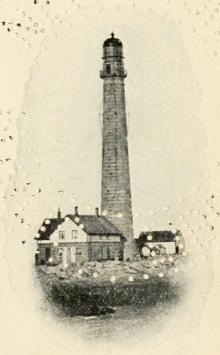 The Life Savers: A story of the United States life-saving service
The Life Savers: A story of the United States life-saving service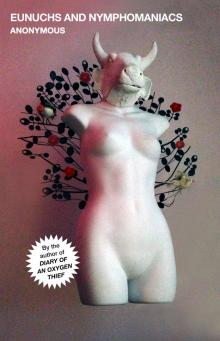 Eunuchs and Nymphomaniacs
Eunuchs and Nymphomaniacs Hildebrand; or, The Days of Queen Elizabeth, An Historic Romance, Vol. 1 of 3
Hildebrand; or, The Days of Queen Elizabeth, An Historic Romance, Vol. 1 of 3 Kitty's Picnic, and Other Stories
Kitty's Picnic, and Other Stories Two Yellow-Birds
Two Yellow-Birds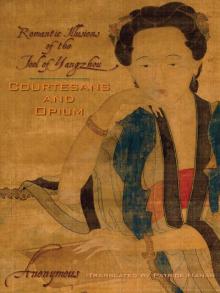 Courtesans and Opium
Courtesans and Opium The Emigrant's Lost Son; or, Life Alone in the Forest
The Emigrant's Lost Son; or, Life Alone in the Forest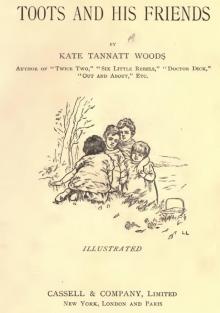 Toots and His Friends
Toots and His Friends Fast Nine; or, A Challenge from Fairfield
Fast Nine; or, A Challenge from Fairfield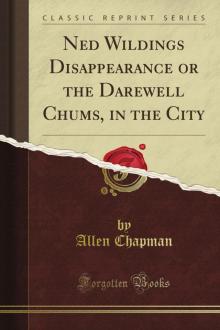 Ned Wilding's Disappearance; or, The Darewell Chums in the City
Ned Wilding's Disappearance; or, The Darewell Chums in the City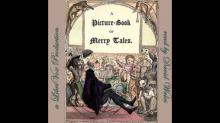 A Picture-book of Merry Tales
A Picture-book of Merry Tales The Trail of The Badger: A Story of the Colorado Border Thirty Years Ago
The Trail of The Badger: A Story of the Colorado Border Thirty Years Ago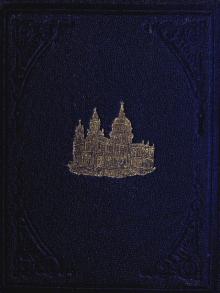 Peter Parley's Visit to London, During the Coronation of Queen Victoria
Peter Parley's Visit to London, During the Coronation of Queen Victoria The Rainbow, After the Thunder-Storm
The Rainbow, After the Thunder-Storm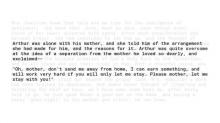 Arthur Hamilton, and His Dog
Arthur Hamilton, and His Dog The Story of the White-Rock Cove
The Story of the White-Rock Cove Grushenka. Three Times a Woman
Grushenka. Three Times a Woman Adventures of a Squirrel, Supposed to be Related by Himself
Adventures of a Squirrel, Supposed to be Related by Himself Falling in Love...Again
Falling in Love...Again The Colossal Camera Calamity
The Colossal Camera Calamity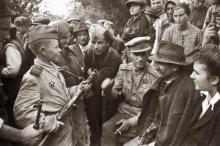 Child of the Regiment
Child of the Regiment Elimination Night
Elimination Night The Kingfisher Secret
The Kingfisher Secret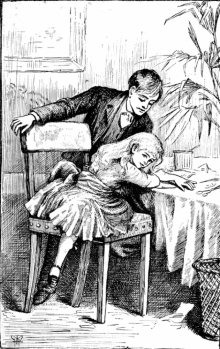 Left to Ourselves; or, John Headley's Promise.
Left to Ourselves; or, John Headley's Promise. The Island of Gold: A Sailor's Yarn
The Island of Gold: A Sailor's Yarn Adventures of Bobby Orde
Adventures of Bobby Orde Twain, Mark: Selected Obituaries
Twain, Mark: Selected Obituaries When Love Goes Bad
When Love Goes Bad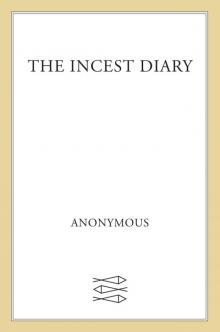 The Incest Diary
The Incest Diary Calling Maggie May
Calling Maggie May The Infidelity Diaries
The Infidelity Diaries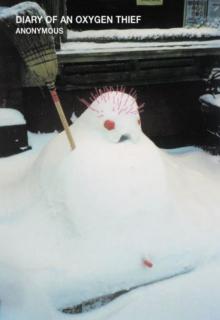 Diary of an Oxygen Thief (The Oxygen Thief Diaries)
Diary of an Oxygen Thief (The Oxygen Thief Diaries) ARABELLA
ARABELLA The Eye of the Moon
The Eye of the Moon Dara
Dara THE ALTAR OF VENUS: The Making of a Victorian Rake
THE ALTAR OF VENUS: The Making of a Victorian Rake The Book of Death
The Book of Death The Book of David
The Book of David The Devil's Graveyard
The Devil's Graveyard The Book With No Name
The Book With No Name I Am A Lesbian
I Am A Lesbian Njal's Saga
Njal's Saga The Epic of Gilgamesh
The Epic of Gilgamesh Darling
Darling Tal, a conversation with an alien
Tal, a conversation with an alien Go Ask Alice
Go Ask Alice Aphrodizzia
Aphrodizzia The Campus Trilogy
The Campus Trilogy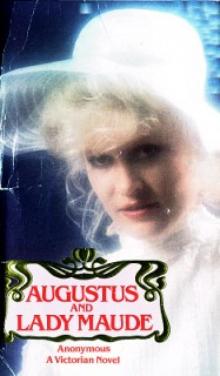 Augustus and Lady Maude
Augustus and Lady Maude Lucy in the Sky
Lucy in the Sky Sight Unseen
Sight Unseen Pleasures and Follies
Pleasures and Follies The Red Mohawk
The Red Mohawk A Fucked Up Life in Books
A Fucked Up Life in Books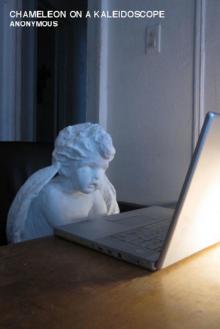 Chameleon On a Kaleidoscope (The Oxygen Thief Diaries)
Chameleon On a Kaleidoscope (The Oxygen Thief Diaries) Astrid Cane
Astrid Cane BEATRICE
BEATRICE The Song of the Cid
The Song of the Cid